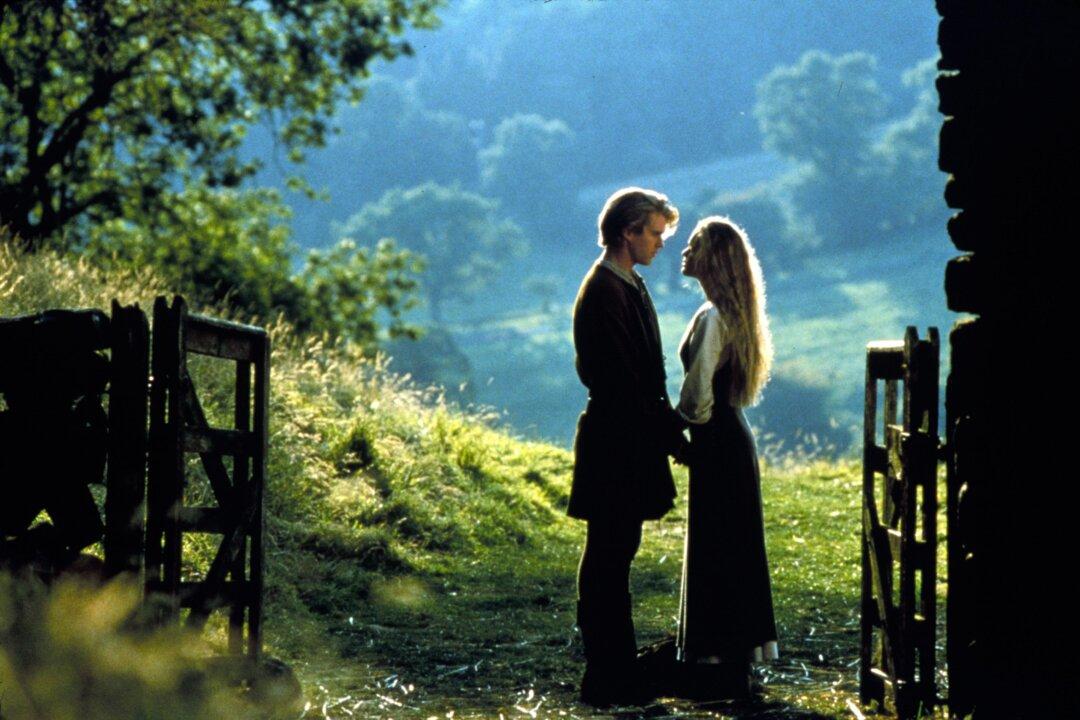When I was growing up, my family practiced a ritual every New Year’s Eve: We watched the entire “Lord of the Rings” trilogy in one day (about nine hours of screen time). I wasn’t allowed to watch the films any other time of year, and so I anticipated the annual New Year’s viewing marathon with a year’s worth of pent-up excitement. These were—and perhaps still are—my favorite films. Eye fatigue and excessive candy consumption aside, that yearly tradition formed me in important ways I still haven’t fully comprehended. Like all good fantasy films, director Peter Jackson’s trilogy transports you to another world, but, no matter how imaginative and “other” it may be, it remains a land where the features of our world are clearly discernible—perhaps even more clearly than they are in our daily lives. We watch fantasy in part to better understand our reality.

Cary Elwes as Westley and Robin Wright as Princess Buttercup in "The Princess Bride." MovieStillsDB
We suffer from a dearth of great fantasy literature and fantasy films, however. Fantasy crafted without a strong sense of universal moral and philosophical principles easily slips into the realm of the absurd or even perverted, where the “fantastic” elements are merely the grotesque productions of a twisted imagination. True fantasy, on the other hand, reflects reality and promotes the good, the true, and the beautiful, which can sometimes be distilled and magnified in fantasy and myth better than in other fictional works.
Before becoming a freelance journalist and culture writer, Walker Larson taught literature and history at a private academy in Wisconsin, where he resides with his wife and daughter. He holds a master’s in English literature and language, and his writing has appeared in The Hemingway Review, Intellectual Takeout, and his Substack, The Hazelnut. He is also the author of two novels, “Hologram” and “Song of Spheres.”
Author’s Selected Articles





